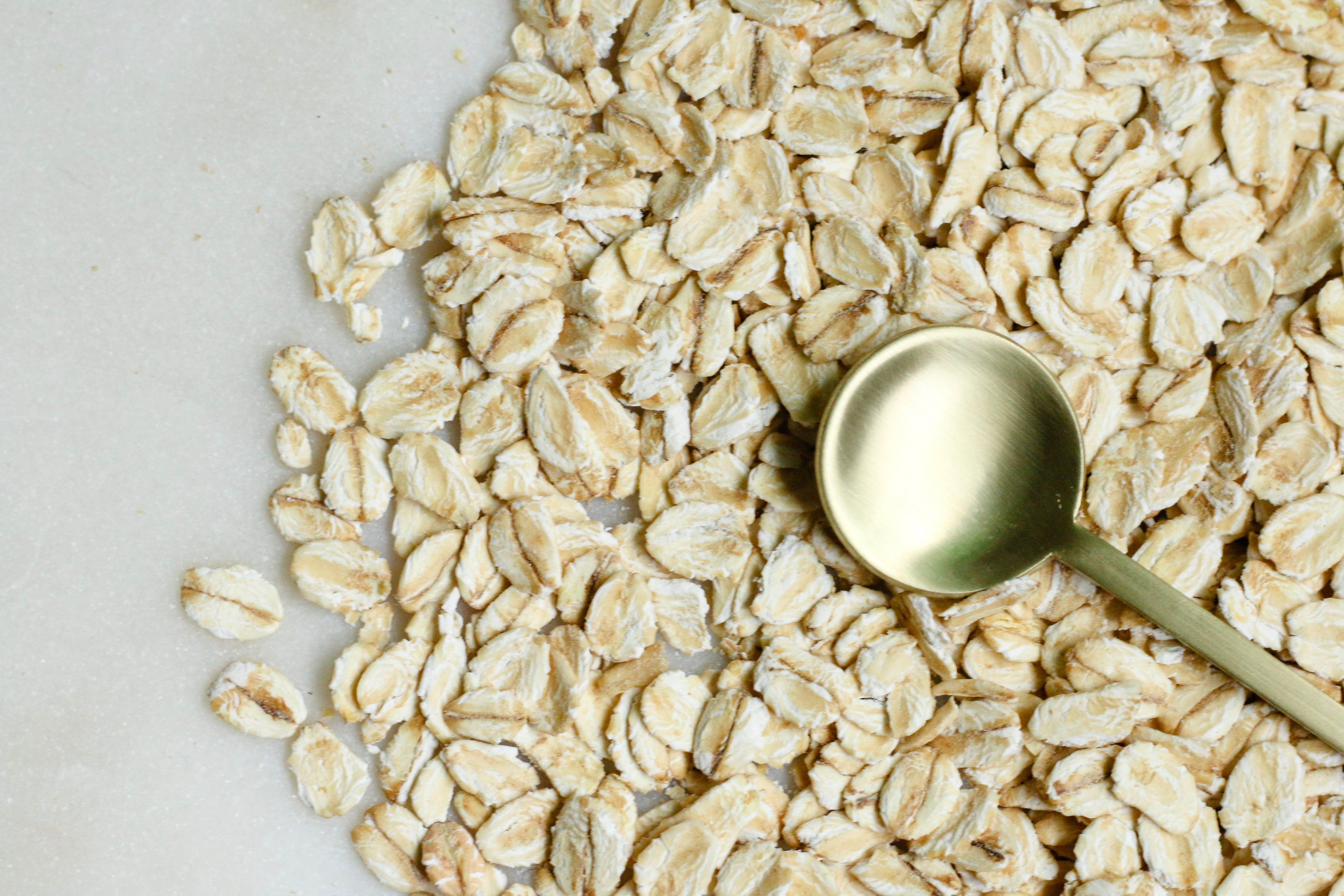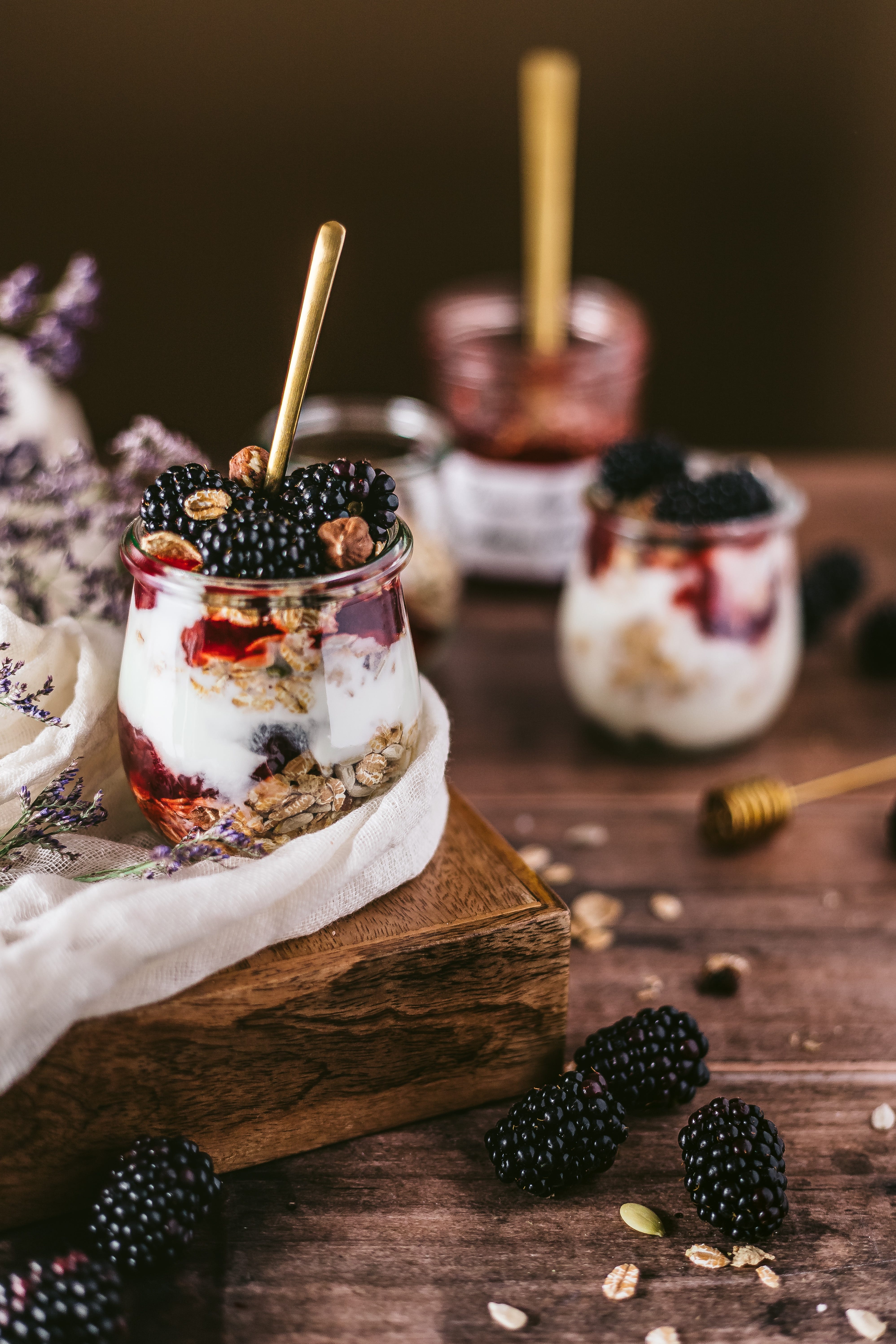What's For Breakfast?
Oatmeal. It's fast. Or it's not. And despite all the "it'll spike your glucose!" kerfuffle lately, it's not the enemy
It's July. And the recipes this month will focus on oats — mostly on variations of oatmeal.
Oatmeal has been getting a bit of a bum wrap lately on the TikToks — apparently it's one of those foods that has the "it'll spike your glucose!!!111" crowd up in arms. (I have debated whether or not to link to one of the best known people responsible for this fixation on glucose, but I think that, as she peddles so much misinformation, we're all better off ignoring her.)

To be honest, I like oats because they are digested quite easily (by my body. YMMV); it's one of the reasons why I'll eat an oat flour-based muffin before running.
That said, I'm not a super big fan of hot oatmeal — not because of a fear of glucose, but rather because I have "texture issues" and I have to make my oatmeal the right consistency and add something chewy — I like nuts; I hate raisins — in order for it to be swallowable.
I tend to buy old-fashioned rolled oats — better for baking in granola and the like — instead of instant or quick-cooking oats, although some granola bar and some flapjack recipes call for these, and so sometimes I'll have the "wrong" oatmeal or too much oatmeal, and things always turn out just fine.
To make oatmeal, the standard recipe calls for one part oats to two parts water, cooked in boiling water, over medium heat, for about five minutes. I hear you can use a rice cooker, but I'm not equipped to tell you how much liquid for how long at what temperature — technology, man.
One of the appeals of instant oats, of course, is that it saves you the five minutes of cooking. And breakfast — thank you industrialism, capitalism, and Frederick Winslow Taylor — is supposed to be efficient.
One of the ways that this demand for efficiency is expressed in our morning meal culture is in "meal prep." And one popular meal prep breakfast is overnight oats.
I won't lie: when I first heard about overnight oats, I was pretty skeptical. Like I said, I'm a "texture eater." I'm also not a big fan of cold cereal — again with the texture issues. And while, sure, you can heat up your overnight oats, it feels like it sort of defeats the purpose of making a grab-and-go breakfast. I mean, why not just make oatmeal in the morning?
One of the things I find hilarious about recipes for overnight oats is the adjective "easy" that's often attached to it. Is there such a thing as an overnight oats recipe that's complicated? I suppose that might be the "Sunrise Overnight Oats" in Elyse Kopecky and Shalane Flanagan's Rise and Run cookbook — that is, if you find grating an apple and a small carrot into your mixture of oats and yogurt and milk to be a challenge.
Or perhaps a complicated overnight oats might involve a recipe that has more than the basic ingredients: old-fashioned oats, a liquid, and a sweetener?
But that's where all the variations come in: you can add seeds or nuts or nut butter or fruit — dried or fresh or frozen — or even (gasp) vegetables. You can add yogurt and/or milk — dairy or non-dairy. The main thing you need to remember when preparing this is the ratio of oats to liquid is 1:1 — that is, depending on how thick or how runny you prefer your oatmeal (and possibly on what other ingredients you plan on adding — chia seeds, for example, will soak up quite a bit of liquid themselves).
Something like this, then:
- 1 cup oat milk
- 1 1/2 tbs chia seeds
- 1 cup oats
- 1/4 cup almond butter
- 2 tsp maple syrup
(Again, apologies that I don’t have this recipe a non-US format. This is our last week on the road! I’ll be able to fix these recipes and take my own photos soon!)

I find it works best if you make this in a pint-sized jar (with lid): add the milk first, then the seeds and then the oats and then the butter and then the syrup; screw on the lid and give it a shake and let it sit in the fridge overnight. The Internet says you can store it in your fridge for five days — so if you wanted to make a work-week's worth on a Sunday night, you can do so. (Meal prepping — probably worth delving a little more into that topic, eh?) But by Thursday or Friday, you're surely ready for something else for breakfast, eh?





